Recruiting Books: Top 10 Books for Hiring Professionals

Welcome toTop 10, Recruiter.com’s weekly rundown of the best of the best in recruiting ! Every Friday, we release a list of some of our favorite people, things, and ideas dominating the industry. From awesome tech tools and cool companies to great books and powerful trends, no stone in the recruiting space will be left unturned.
This Week: Top 10 Books on Recruiting and Hiring
Much has been made in recent times about the need for professional development, especially with regard to the dreaded skills gap and millennial talent’s desire for challenging work and career advancement opportunities.
There are a lot of cool new approaches to professional development out there, including numerous apps, self-directed eLearning, and rotational job arrangements. And while these are all great solutions, our discussions of professional development often overlook the humble book, which has been a trusty vehicle for self-instruction and -improvement for centuries. It’s not new, it’s not sexy, but the book is definitely a reliable tool in your professional development kit.
Today, we salute the book and its role in professional development by offering this roundup of our ten favorite books on recruiting and hiring. Some of the books are specifically about the subject of talent acquisition, and others deal with broader topics that still have plenty of ramifications for recruiters and HR professionals. But every book on this list has something valuable to teach hiring authorities, no matter where they work.
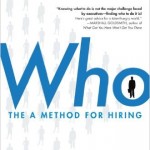
by Geoff Smart and Randy Street
When we surveyed our networks in search of nominations for this list, Who was far and away the most widely cited book. I’d guess that at least 10 percent of our respondents named Who as a must-read, and when you consider just how many books there are about recruiting and hiring in the world, it’s staggering that one single text could command so much attention.
Who‘s popularity probably stems in part from the way it clearly outlines a four-step hiring process that any and all businesses can adopt right now. With so much hiring and recruiting advice flying around out there, simple, immediately practical insights are a breath of fresh air. It also doesn’t hurt that much of the information presented in Who is grounded in interviews with and surveys of successful CEOs: That way, readers know they aren’t getting all talk. Who is a book that walks the walk, too.
Karla Zehnder, CEO of Hodgson Consulting & Solutions, Ltd., and one of the many Who fans who reached out to us, said, “This book is the best that I have come across in terms of a structured hiring process. Who outlines the exact questions to ask during the interview process … helping you cut through the facade of a candidate’s resume to make sure you are hiring an A-player.”
That’s a ringing endorsement if I’ve ever heard one.
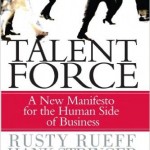
by Rusty Rueff and Hank Stringer
Like all good manifestos, Talent Force takes a radical approach to its subject – and it’s a sorely needed approach in today’s day and age.
According to Rueff and Stringer, “workforces” are out, and “talent forces” are in. The difference between these two concepts is profound: Workforces are simply groups of employees who work at your business – but talent forces are strategically curated powerhouses of high-impact workers who bring the right attitudes, experiences, and skills to the right places at the right time. It is companies that know how to build talent forces – not workforces – that will thrive in the current economic climate, according to Talent Force. By mixing the best bits of cutting-edge technology and good, old-fashioned, person-to-person recruiting, Rueff and Stringer draw up a plan for tomorrow’s talent, today.
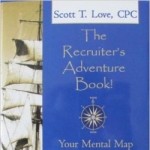
by Scott Love
Subtitled “Your Map to Finding Buried Treasure in the World of Recruiting,” Love’s The Recruiter’s Adventure Book really commits to its central metaphor of recruiting as a kind of adventure. For the burnt out and overworked among you, that may sound crazy – but if you hear Love out, you’ll discover he’s really onto something.
See, what’s great about Love’s book is that it not only “helps [recruiters] achieve [their] fullest potential by harnessing all of the power within [their] mind[s] and fixating it on a single goal: maximum performance achievement,” but it also aims to help recruiters attain a more fulfilling and satisfying level of work-life balance. In essence, Love turns recruiting into a kind of adventure because he wants recruiters to feel that their work is meaningful and impactful. Read the book, and you’ll see that it can be done – no matter how stressed you might be feeling right now.
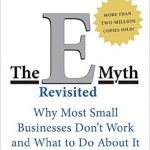
by Michael E. Gerber
Gerber’s wildly successful book is not, strictly speaking, a book about recruiting and hiring. The “E” of the title stands for “entrepreneur”, and Gerber describes the central idea behind the book like so: “[B]usiness owners – typically brimming with good but distracting ideas – make poor entrepreneurs.” So, you’d be forgiven for passing this book over in favor of other texts that are more explicitly focused on recruiting and hiring.
You’d be forgiven, but you’d be wrong to do so. That’s because Gerber’s overarching ideas about what make businesses truly successful can serve as a powerful foundation for a company’s hiring strategies.
Andrei Mincov, owner of Trademark Factory, said it best in his nomination of The E-Myth: “I found Michael Gerber’s E-Myth to be the most useful book in the area [of recruiting and hiring], simply because it explains – like no other – the need to view the hiring process as part of systemizing the business. The how-to only becomes important after you understand the what-to, and E-Myth is exactly about the what-to.”
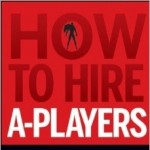
by Eric Herrenkohl
The title of Herrenkohl’s book pretty much says it all: If you own, operate, or work at a startup, small business, or medium-size business that doesn’t have the resources to build a dedicated recruiting department, then you need to read this book. Not only does How to Hire A-Players aid readers in the difficult process of defining what an A-player looks like for their business, but it also provides strategies for how companies can use their existing sales and marketing networks to make great hires. When you want to build a powerful team without breaking your bank, turn to How to Hire A-Players.
Money Crashers CEO Andrew Schrage best summed up the appeal of How to Hire A-Players when he nominated the book, writing: “It gets into how to leverage your current sales, marketing, and networking strategies to find top talent for your company. It also talks about how to reach your recruiting and hiring goals even if you don’t have a recruiting department, which is and was the case with my organization.”
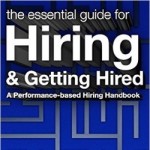
by Lou Adler
Chances are, if you’re reading our site right now, you know who Lou Adler is. If you work in hiring or recruiting and don’t know Adler’s work by heart – well, you should change that ASAP. Adler is pretty much the recruiting and hiring guru.
In The Essential Guide, Adler distills his decades’ worth of knowledge into one comprehensive text that looks at both sides of the recruiting coin: the act of hiring, and the act of getting hired.
“What’s unique about this book is that it talks about both sides of the equation,” said Kevin Adkins of Kenmore Law Group when he nominated the book. “Even if you are not looking to get hired, it is helpful to see things from both sides.”
In other words: Recruiters benefit from getting a glimpse into the world of job seekers, and job seekers can brush up on all the strategies that employers will use in the hiring process. The book is a win for all parties.
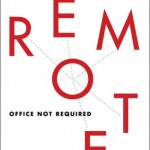
by Jason Fried and David Heinemeier Hansson
Proclaiming that “[t]he modern office has become an interruption factory,” Fried and Hansson use Remote to explore virtual work arrangements from both sides – that of the employers looking to hire remote workers and integrate them into their teams and that of the job seekers who want to work remotely.
Simon Slade, CEO and cofounder of SaleHoo, told us that Remote is the reason he started hiring virtual workers in the first place: “The authors explore the benefits and challenges of having a remote staff and also provide extensive advice on how to hire and train teleworkers. It really gave me the extra confidence I needed to start hiring remotely. Now, 24 of my 29 staff members telecommute!”
Even if you don’t generally recruit or hire remote workers, you’d do well to pick up and read Remote. Telecommuting is no longer the way of the future: It’s here right now, and it probably won’t be long before even the organizations that were actively opposed to remote work arrangements start going virtual.
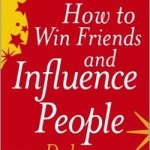
by Dale Carnegie
Much like The E-Myth, Carnegie’s classic self-help book is not technically a book about recruiting and hiring. That being said, How to Win Friends does explore topics like “three fundamental techniques in handling people,” “the six ways to make people like you, “the twelve ways to win people to your way of thinking,” and “the nine ways to change people without arousing resentment” – all valuable skills that recruiters will need when it comes to bringing top talent to their clients or organizations.
Jason Monte, a senior account executive at digital branding agency Brolik, wrote in his nomination of How to Win Friends that the book was essential to “understanding how to build a community of self-motivated and well-rounded employees that work together as a team.” And who doesn’t want a team like that?
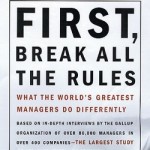
by Marcus Buckingham and Curt Coffman
According to author and business, management, and marketing expert Bertrand Jouvenot, First, Break All the Rules “highlight[s] the importance of focusing and building on people’s strengths.” But as the title of the book suggests, Buckingham and Coffman don’t take the tired, traditional approach to “strengths.”
Using management data collected by Gallup as a foundation for their claims, Buckingham and Coffman argue that making great hires is all about “select[ing] an employee for talent rather than for skills or experience.” And that’s just the beginning: Buckingham and Coffman go on to shatter many – if not all – of our preconceived notions regarding hiring and managing employees.
“[Great managers] do not believe that, with enough training, a person can achieve anything he sets his mind to,” according to First, Break All the Rules. “They do not try to help people overcome their weaknesses. They consistently disregard the golden rule. And, yes, they even play favorites.”
Want to know what the heck these guys are talking about? Read the book – you won’t regret it.
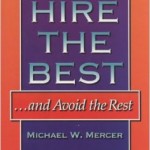
by Michael Mercer
In Hire the Best, Mercer provides readers with step-by-step instructions on how to conduct interviews, how to test candidates’ skills, and how to check references. This alone makes it a great handbook for recruiters, especially those who are just starting out in the field.
But what’s really great about the book is that it also dives deeply into assessing and measuring the ROI of a hire. Armed with Hire the Best, recruiters and hiring managers will learn how to take a good hard look at their hires to see if they were really the right choice. This sort of insight is, quite frankly, invaluable.

